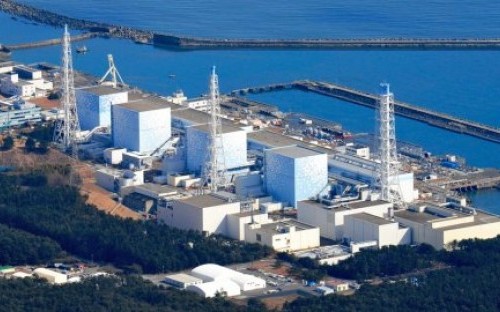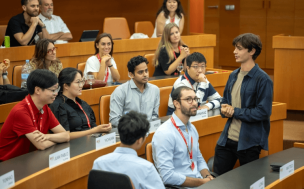Who are the world’s biggest players in nuclear energy?
Nuclear power stations are run by a mixture of state-owned and private companies, including large energy firms such as EDF (France), KEPCO (Korea), TEPco (Japan), Excelon (US), and E.On (Germany). The countries that rely most on nuclear power are historically those who have not had hydrocarbon resources and have built a significant nuclear base as a result such as France, Korea & Japan.
Do you think the situation with the Japan’s Fukushima atomic power station will change attitudes to nuclear energy?
The recent earthquake and tsunami have been a terrible tragedy and the incident now happening at Fukushima will certainly have an impact on the energy industry. At Fukushima you have seen several events piled on top of each other to cause the current problem. First the earthquake shut the plant down and then the tsunami knocked out both primary and back-up power provision. With both power systems lost, the cooling systems failed leading to the fires and explosions. What’s happened will lead to a new debate about safety in the nuclear power industry and reviews have been announced in several countries already. One aspect that will be discussed are so called ‘tail events’ - low probability but high impact events which often involve multiple or sequential incidents that overwhelm the safeguards put in place. Such events are not exclusive to the nuclear industry: BP’s Gulf of Mexico disaster and the world financial crisis had ‘tail risks’ that came together to cause a major incident.
Germany and China are two major economies to halt some nuclear activity following the Fukushima incident. Will they resume?
It’s only right that this incident has led to some countries putting plans on hold while governments take stock. Thinking about the future, you need to consider each country’s energy needs and how they can be met. For countries like China and Germany it’s difficult to imagine a future energy supply without a nuclear element - China’s growth objectives and Germany’s carbon reduction goals are both very hard to achieve without some use of nuclear power. Safety precautions should be re-visited and the Fukushima incident in Japan will have an impact, but it’s difficult to make major changes to the complicated mix of energy supply that’s already adapting to meet global demands and concerns about climate change and energy security.
What are the viable non-carbon energy alternatives instead of nuclear?
Hydroelectricity is already a significant source of non-carbon energy and there are now increasing amounts of wind, solar, wave and tidal energy as well. Don’t forget there are also opportunities for the more efficient use of energy, either through more efficient cars and appliances or by changing our behaviour and the energy we consume. There is also the option to decarbonise electricity from fossil fuels through the use of carbon capture and storage – if this can be proved to be technically and economically successful. However, the challenge with low-carbon or zero-carbon alternatives is that many countries and companies already have ambitious plans to increase renewable energy, in some cases by as much as 20% every year for the next decade. This is a massive programme of investment in new generating capacity and to do more, at speed, will make plans that are already ambitions even more challenging. It’s difficult to bring on the alternatives even faster and so hard to imagine the removal of nuclear any time soon.
How is nuclear energy covered in the Warwick Global Energy MBA?
Our MBA looks at management issues that the energy industry faces, some of which are in the nuclear sector as well as other parts of the power industry – e.g. aging power stations, the challenges of building new facilities, the options for smaller scale distributed generation. But nuclear is just one part of the energy mix covered in the course. It’s an interesting time to be studying an MBA that has a focus on a certain industry as the energy industry is changing dramatically and management practices will evolve as a result.
Do you have any current students from the nuclear sector?
We have several students from large energy companies that have nuclear power as part of their portfolio and even someone with a longer perspective who works on nuclear fusion!

About David Elmes:
David Elmes has more than 20 years experience working in the energy & management consulting industries, including senior roles at BP, CapGemini and Schlumberger. He studied Natural Sciences at the University of Cambridge and has an MBA from the Weatherhead School of Management, Case Western Reserve University in Cleveland, Ohio. He is now the Academic Director for The Warwick Global Energy MBA.
RECAPTHA :
e2
49
47
54







